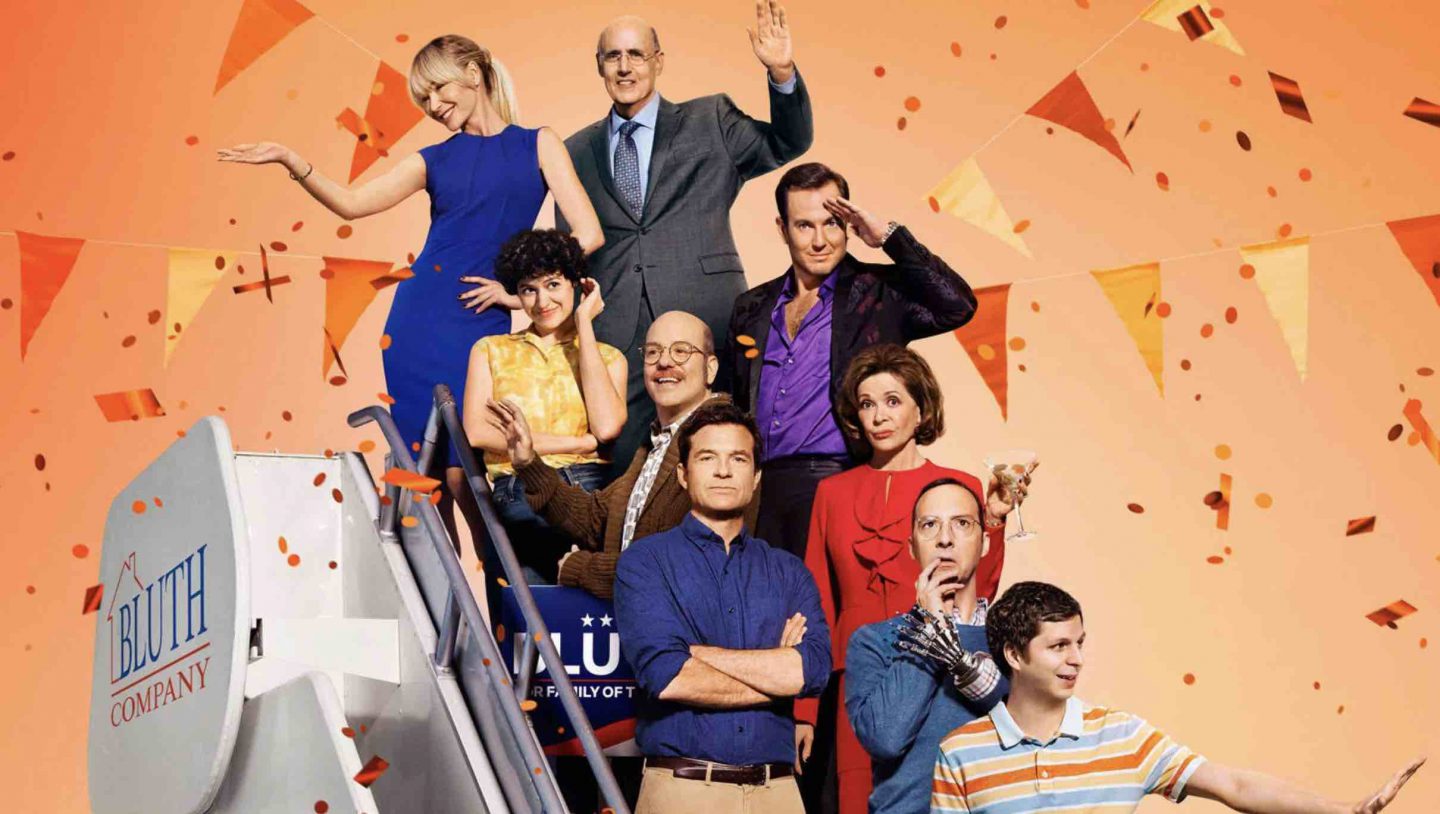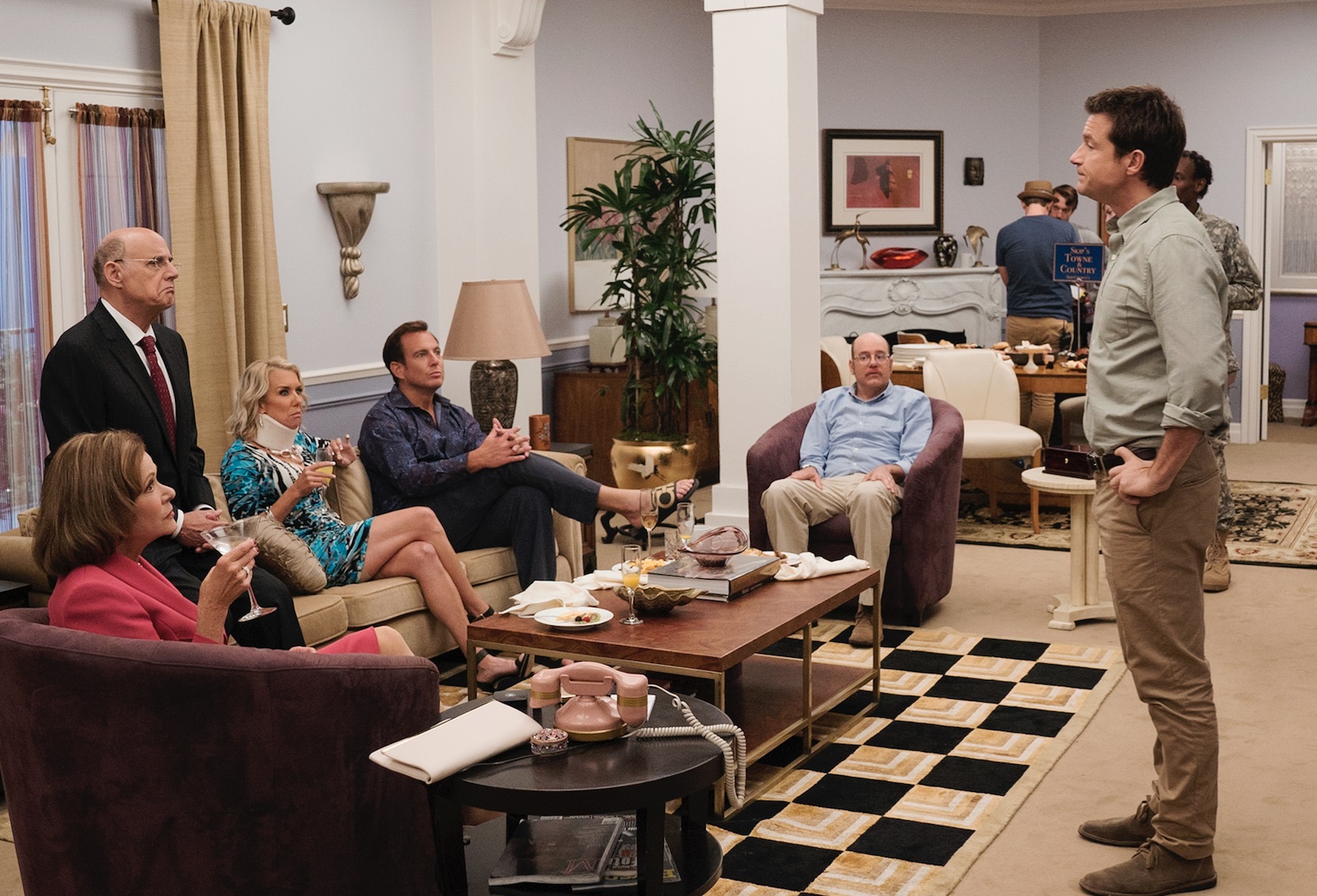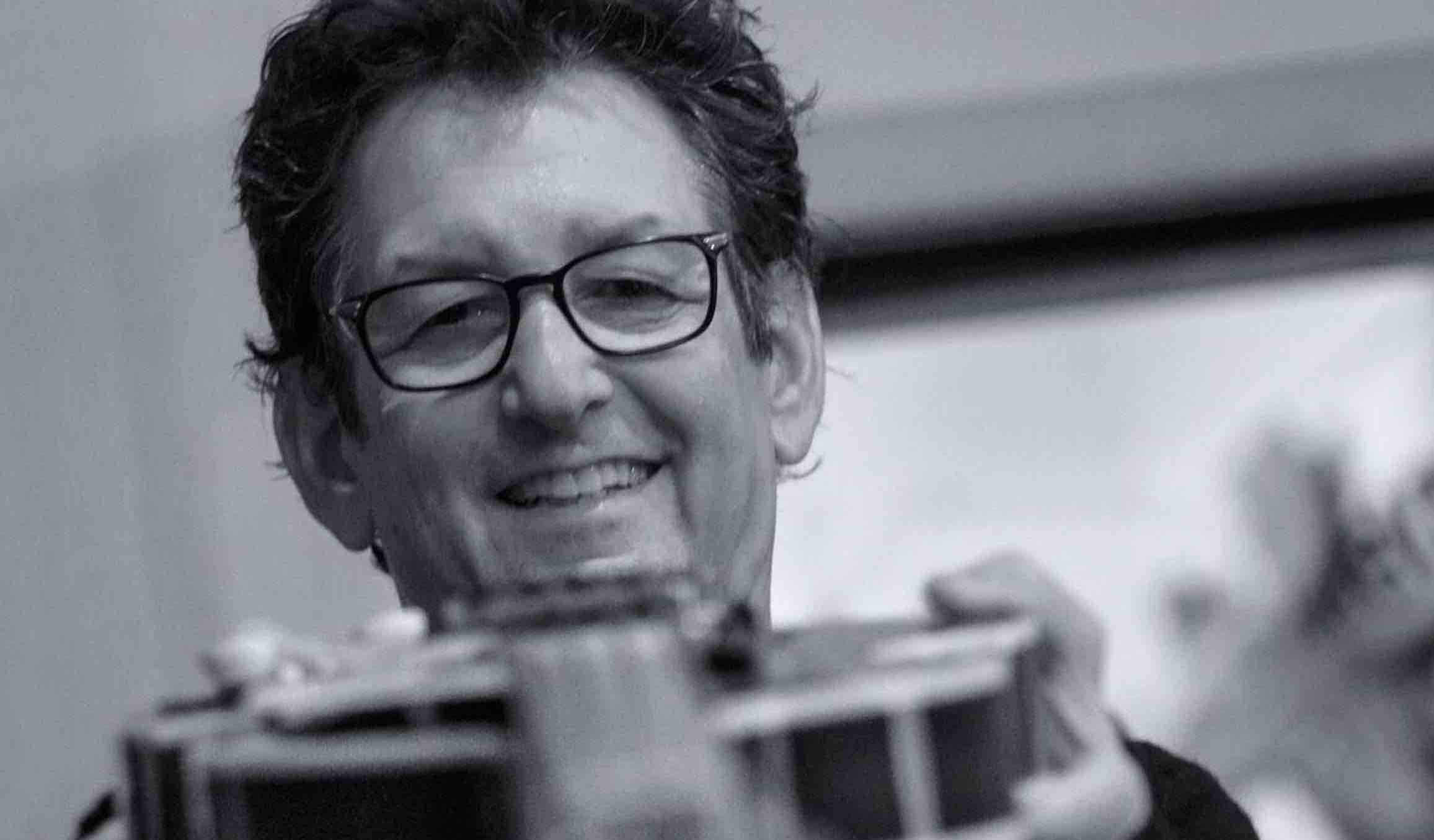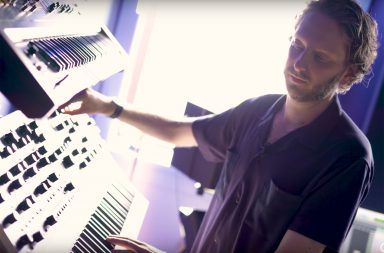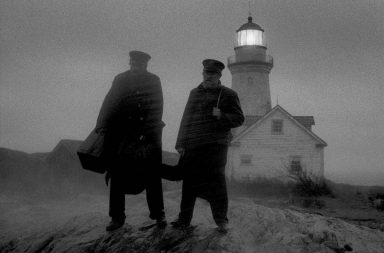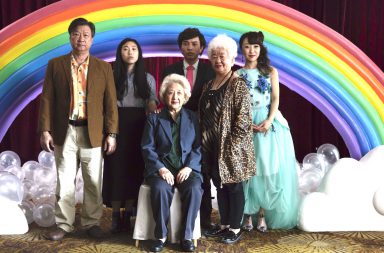Annyong y’all.
Now the story of an iconic series that is back on Netflix and the one composer who had no choice but to be once again part of it. A few days after the streaming service dropped a surprise remix of season 4, eight long-awaited, all-new Arrested Development episodes were finally put online. For fifteen years now, the dysfunctional life of the riches-to-rags Bluth family has been rhythmed by the eccentric compositions of David Schwartz, a respected member of the Arrested Development off-screen family who, by composing parody songs and whimsical themes, has always been a big part of the series’ meta, almost undefinable, tone. Score It Magazine asked the AD and The Good Place (also on Netflix) composer about the most unmissable, hilarious and off-the-hook — in Buster’s words — show in the history of American television. He talked, among other things and with a keen sense of humour, about his all-new music for this fifth AD season and about a few more things you probably did not know about the iconic Arrested Development themes.
Arrested Development’s theme is one of my favourite TV theme songs of all time. Its creation dates back to more than a decade ago but can you tell us how you created it? Why did you choose the ukulele? And most importantly, is that you that we hear whistling?
I think the creation of the Arrested Development theme was sort of a perfect storm. My wife and I had just come back from Bora Bora where we celebrated our anniversary. On the first night there I overheard a band using the Tahitian ukulele, and spent the next four days tracking one down! In one of the first cues I wrote for Arrested Development, I used that uke and Mitch Hurwitz, creator of the show and all-around genius, loved that sound. The more instruments and parts I added to the theme, the more Mitch said, “Great! What else can we add?” I believe the whistle was the last of the additions, and the whistler is my great friend and wonderful musician James McVay. At first I feared that the main title theme was too busy, but Mitch and history have proved me wrong! In season 4, we added something different to the main title theme for each individual episode, matching the musical addition to the character that was featured in the episode. In season 5 we are back to the classic, original main title.
The closing credits piece is delightful as well, can you tell us more about that amazing trumpet we hear?
Yes, that is the wonderful Tom Marino. I’ve been using Tom on trumpet since before I was a composer. I’m always trying to get him to play higher and higher, he’s fearless and always hits the high note!
How did you meet Arrested Development creator Mitchell Hurwitz? Was it on The Ellen Show?
Actually, it was before the two shows we did for Ellen DeGeneres. The second one, her variety show, never made it to air. A shame, as it was very cool. I met Mitch on the last season of The John Larroquette Show. It was the first time Mitch was a showrunner. We each remember our meeting differently. Here’s my version: I got a call from Mitch out of the blue. He said that while searching for cleaning supplies at Witt/Thomas Productions, he came across an old cassette with my name on it. He liked the music on it, so he called me up and invited me to a meeting. I was totally charmed, as Mitch is one of the most charismatic people I have ever met. Everything I’ve ever done with Mitch has been absolutely inspiring. Basically, we never stop laughing!
Arrested Development is a show where music is very much present. How do you work with Mitch Hurwitz and how long does the scoring process for one episode take?
Mitch Hurwitz is an incredible encyclopedia of all things musical. In fact, he’s kind of an encyclopedia of everything. We have often joked that he memorized the internet. We try to find time to spot every episode, sometimes multiple episodes in one sitting. Having music editor Jason Newman is a huge help; he is definitely a part of the music team with Mitch and myself. We try to have a week between the spotting and the final dub/delivery, although very often we have had shorter turnarounds.
How many musicians do you work with?
I try to use as many musicians as I can. Time is always a factor. This season we’ve have a few larger sessions in my studio, and that’s great fun!
Arrested Development’s music has a very recognizable quirky tonality. There are some elements of swing music, of jazz music. Some pieces such as ‘Tobias Eat Pray Gay’ makes me think of Eastern European music while ‘Face Blindness’ has something very French in it (maybe it’s the accordion). How was the tone of the music decided, how much direction were you given by Mitch Hurwitz and did you have any influence to inspire you?
Mitch definitely throws out musical ideas and influences. I think the music is a stew of all my influences, the writing of the show and the great characters as portrayed by our spectacular cast. Before I was a composer I played in almost every type of band imaginable: orchestra, swing bands, country, pop, R&B, polka, etc. While many composers get known for doing one thing extraordinarily well, I feel that many of my shows have taken more of a ‘kitchen sink’ approach. The challenge for me is to compose in a wide variety of styles while making the music still feel like it has a unique identity. The other show I’m composing now, and love, is The Good Place. Musically it has a very specific palate, and it’s a great treat to work that way too.
Each episode of the original season 4 (not the remix) had the particularity of being character-centric, resulting in the opening song being brilliantly altered depending on who the point of focus is. Who came up with this idea?
That was 100% Mitch’s idea. It came very late in the process, so whenever I had musicians come in for the first few episodes, we would try to come up with one of the main title musical additions and match it to the character and episode.
How much of a challenge is it to work on a series such as Arrested Development, given that the show has had quite an unusual life so far, being on and off again and on different networks? Was it difficult to come back after a seven-year hiatus in 2013? And then again in 2018?
It’s obviously special to have a show that’s been on the air/streaming for 15 years. Although having an incredibly loyal fan-base, we’ve always been the underdog. So every time it comes back it’s been very special. I usually get anxious the last few weeks before we start again, but once I start writing that all goes away, and the goal is to finish each episode. I like to start each episode by writing a new ukulele swing tune. If the episode doesn’t start with a swing tune, it’s actually a little harder for me to get going on the composing for that episode.
Is there a music supervisor on the series, or is Mitch the one who says, “Let’s use ‘Christmas Time is Here’ or ‘The Sound of Silence’ for this scene” or do you have any input on this?
Those musical suggestions almost always come from Mitch. Since I write so many songs for the show, it’s great when we use a well known song.
Were you in charge of re-orchestrating the mariachi version of ‘The Sound of Silence’ and the goth version of ‘The Final Countdown’?
Yes to both. ‘The Sound of Silence’ was really difficult. First of all, it was like messing with the Mona Lisa. Second, the record itself is brilliant and very unusual. If I remember correctly, it’s pitched between two keys, and the tempo is variable, especially in the beginning. The joke was to not hear the mariachi horns until we see them walking by in the background. Definitely tricky timing. Kudos to my long time guitarist and ukulelist George Doering for matching the sound. Apologies to Paul Simon.
Your music and songs add up to the series’ meta aspect and self-awareness and I’m not sure there is another TV show that invested so much energy to create such a great fake musical environment for its characters—except maybe Tina Fey’s 30 Rock for which Jeff Richmond wrote amazing fake songs. Arrested Development allows you to play with and spoof many musical tropes (the spy theme; the 90s rock song; teen pop music; the funk/James Brown-inspired song; the 60s pop music, with Beatles-inspired songs, etc.) You co-wrote most of these fake songs with Gabriel Mann, how much freedom do you have in writing them and how much fun do you have while doing it?
Total freedom, and too much fun! We always take the songs seriously, so we’re never trying to write a funny or a fake song, just, a song. We started writing songs in the pilot episode of the first season, and it usually starts with Mitch saying, “Hey, can we do a song about this here?” Sometimes he has written lyrics, or thrown out a musical style to try, and sometimes we just start a song from nothing. Gabe started out working for me years ago, and now is a great composer in his own right (Modern Family and others). We often start writing after we have finished our scoring days, sometimes as late as 9PM, and then we try to write one or two whole songs in a night. The frustrating part is when we’ve written more than enough length for a TV series but we feel we have to compose a full song that night. Another collaborator has been my daughter Lucy Schwartz, who started out as the voice of ‘Mr. F’. Like Gabe, she is an incredibly versatile singer and songwriter. She was 14 when we started, just like Michael Cera and Alia Shawkat.
With season 5, did you have to write much new material? Will we have new fake songs to add to our playlist?
Yes, there are some new songs. My goal is to write 100% new music. Mitch loves so many of the classic themes. It ends up being a lovely mish-mash of both. Season 5 features a lot of new music, and a lot of the cues tend to be longer than the first few seasons. Stop calling my songs fake! The only thing fake on Arrested Development is FakeBlock.
You also work on another Netflix favourite, The Good Place, where the music is more discreet, softer and more whimsical; we can hear tintinnabulations, soft strings and piano, which makes sense since the show takes place, well, in the Good Place—or is it? Can you tell us a few words about scoring this series? Do you know if the fact that Michael Schur has done two mockumentary series before that (The Office and Parks and Recreation, where extradiegetic music is of course absent) has anything to do with the spare use of music in The Good Place?
Tintinnabulations… I hope you’re not referring to the ringing in my ears! The Good Place has a very specific and unique sound. Upon meeting Michael Schur and the other producers, one of the first things they said was, “In general, we don’t care for music.” So I saw that as a wonderful challenge. I love everything about The Good Place, the stories, the people, and another unbelievably great cast. As I alluded to earlier, it’s a treat for me to work with a specific musical palate. That said, as the story of TGP has changed, so has the music. There are a lot more dark cues, but many of the original wondrous themes have also survived. I had a long time to work on the original pilot. The orientation scene was the key to figuring out the score. I think I wrote it twelve times before we had one that we all loved. Interestingly, we have used almost every one of those twelve attempts now, and they’re part of the zeitgeist of the series’ score.
I have to ask a question about the now infamous New York Times interview that was published a week prior to the release of season 5, it would be hypocritical of me to ignore it. We are huge fans of Arrested Development here at Score It Magazine, and I have to say we’ve been greatly disturbed and almost put off by the attitude of the male actors towards Jessica Walter during this interview. So much so that it has dampened our enthusiasm to watch season 5. We will watch it, eventually, but the way we look at the show has been altered, in spite of our endless love for it. I guess as a composer you don’t really get to hang out onset as you intervene at a later stage of the production, but I suppose you’ve already met the cast. Does all this change your perspective on the show and will it affect the way you’ll work on it, should a season 6 happen?
I can only really comment on things I’ve been witness to, and I’ve not been privy to any incidents. I don’t want to say nothing because silence can be misinterpreted as condoning certain behaviors, but I’m just so far removed from what goes on on-set, I feel I don’t really have anything to say here.
I’d like to bring back some light-heartedness to this interview, so I’ve saved the most important question for the end. In your opinion, which Bluth family member is the most likely to have ever seen a chicken?
- Lucille with her “a coodle doodle doo”
- George Sr. with his “coo coo ka chaw”
- Lindsey with her “cha chi cha chi cha chi cha”
- G.O.B. with his “cockcockcockcocka cockcockcockcocka”
In the immortal words of G.O.B., “Come on!”
Interview prepared and conducted by Marine Wong Kwok Chuen (her?)
Edited by Valentin Parmesan Maniglia
